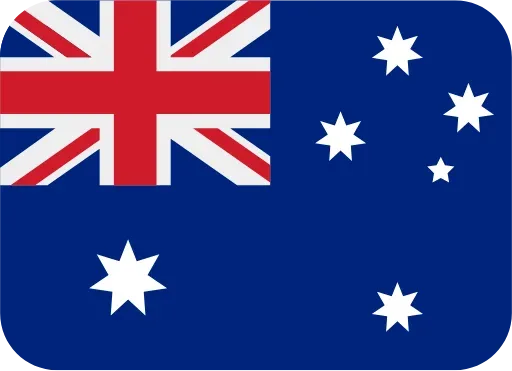Lesson 5: Traditions
Introduction
Traditions are an essential aspect of any culture, providing a sense of identity, continuity, and community. In Australia, traditions reflect the nation’s diverse heritage, blending Indigenous practices with influences from European settlers and more recent immigrants from around the world. This lesson explores the rich tapestry of Australian traditions, focusing on Indigenous customs, national holidays, cultural practices, and the evolution of contemporary traditions that shape modern Australian society.
Indigenous Traditions
Australia’s Indigenous peoples, including Aboriginal and Torres Strait Islander communities, have rich cultural traditions that have been passed down through generations for over 60,000 years. These traditions are deeply connected to the land, the environment, and spirituality.
- Dreamtime: Central to Indigenous Australian culture is the concept of the Dreamtime, which refers to the time when the world was created. Dreamtime stories explain the origins of the land, animals, and people, and they are passed down orally through storytelling, art, and ceremonies. These stories are not only foundational myths but also guide moral conduct, laws, and social structures.
- Ceremonies and Rituals: Ceremonies are an integral part of Indigenous culture, marking important life events such as births, initiations, marriages, and deaths. These ceremonies often involve dance, music, and body painting. For example, the corroboree is a traditional gathering that involves song, dance, and storytelling to celebrate cultural events.
- Connection to Land: Indigenous Australians have a profound spiritual connection to the land, viewing it as a living entity with which they have a deep relationship. This connection is expressed through traditional practices such as caring for country, which involves sustainable land management techniques passed down over millennia.
National Holidays and Celebrations
Australia’s national holidays and celebrations reflect its history, values, and evolving identity. Some of the most significant traditions include:
- Australia Day (January 26): Australia Day marks the anniversary of the arrival of the First Fleet at Port Jackson in 1788. It is a day of national pride, celebrated with community events, barbecues, fireworks, and citizenship ceremonies. However, it is also a day of reflection and mourning for many Indigenous Australians, who view it as Invasion Day, marking the beginning of colonization and dispossession.
- Anzac Day (April 25): Anzac Day commemorates the landing of Australian and New Zealand Army Corps (ANZAC) troops at Gallipoli during World War I. It is a day of remembrance for all Australians who have served and died in military conflicts. The day begins with dawn services across the country, followed by marches and ceremonies that honor veterans and reflect on the sacrifices made for the nation.
- Christmas and New Year: Christmas in Australia is celebrated in the summer, which shapes the traditions associated with the holiday. Many Australians enjoy outdoor activities such as barbecues, beach outings, and picnics. Christmas traditions include decorating homes with lights, exchanging gifts, and attending church services. New Year’s Eve is celebrated with large public gatherings, fireworks, and festivities, particularly in major cities like Sydney.
- Melbourne Cup Day: The Melbourne Cup, known as “the race that stops a nation,” is Australia’s most famous horse race, held on the first Tuesday in November. The day is a public holiday in Victoria and is celebrated across the country with events, parties, and fashion shows, making it a significant cultural tradition in Australia.
Cultural Practices
Australia’s cultural practices reflect its multicultural population and the blending of traditions from various communities. These practices include:
- Barbecue (“Barbie”): The barbecue is a quintessential Australian tradition, symbolizing the country’s love for the outdoors and casual social gatherings. Whether in backyards, parks, or at the beach, the barbecue is a common way for Australians to come together and enjoy grilled meats, seafood, and vegetables.
- Sporting Traditions: Sport is a significant part of Australian culture, with events like the Australian Football League (AFL) Grand Final, State of Origin rugby series, and the Australian Open tennis tournament drawing widespread attention. Participation in and support for local sports teams is a key social activity, and sporting events often serve as communal celebrations.
- Multicultural Festivals: Australia’s diverse population is reflected in the numerous multicultural festivals celebrated across the country. Events such as the Sydney Gay and Lesbian Mardi Gras, Chinese New Year, Diwali, and NAIDOC Week (celebrating Indigenous culture) highlight the rich cultural diversity and inclusiveness of Australian society.
Contemporary Traditions
As Australia continues to evolve, new traditions have emerged, reflecting the changing values and priorities of the nation.
- Environmental Consciousness: In recent years, Australia has seen a growing tradition of environmental awareness and sustainability. Practices such as recycling, conservation efforts, and participation in events like Earth Hour and Clean Up Australia Day are becoming increasingly embedded in the national consciousness.
- Reconciliation Efforts: The tradition of acknowledging the traditional custodians of the land at public events has become a common practice, reflecting a growing commitment to reconciliation with Indigenous Australians. National Reconciliation Week and events such as Sorry Day are part of an ongoing effort to recognize and address the historical injustices faced by Aboriginal and Torres Strait Islander peoples.
- Australia Day Debates: The conversation around Australia Day has evolved into a national debate about the date’s significance and the impact of colonization on Indigenous communities. This ongoing discussion reflects a broader tradition of questioning and reassessing national values in the context of a more inclusive and equitable society.
Conclusion
Australian traditions are a dynamic and evolving part of the nation’s cultural landscape, blending ancient Indigenous customs with the influences of European settlers and the diverse contributions of immigrants from around the world. These traditions play a crucial role in shaping Australian identity, providing a sense of continuity and community while also adapting to the changing values and priorities of contemporary society. Understanding these traditions is essential for appreciating the richness and complexity of Australian culture.

